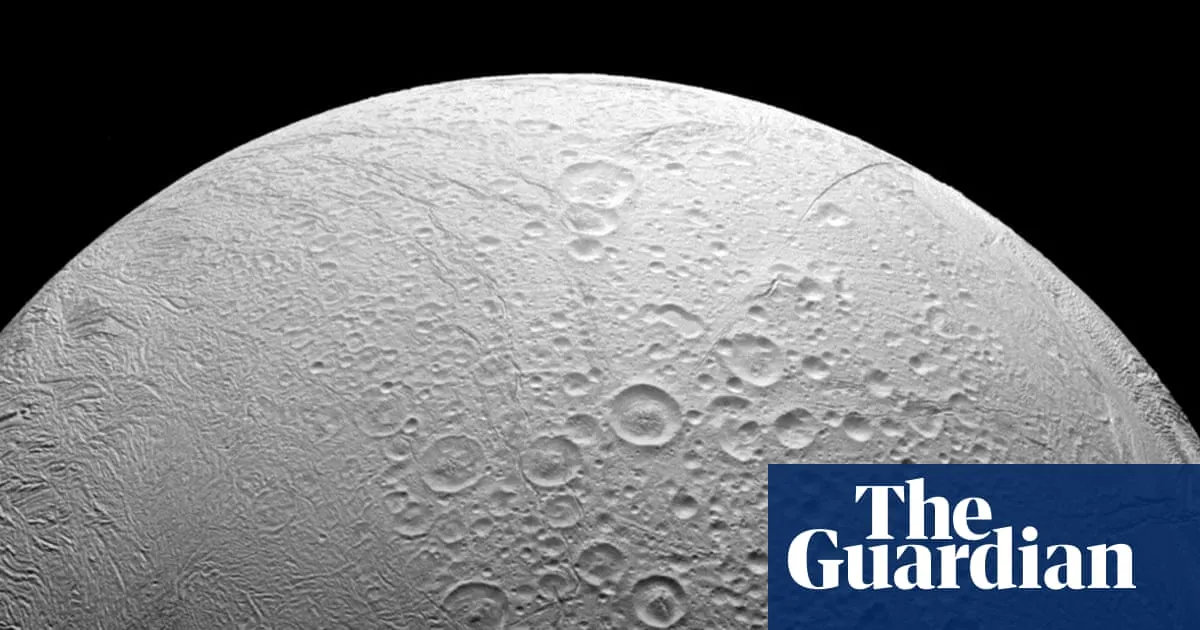
The quest for extraterrestrial life has fascinated scientists and the general public for decades. From tentative evidence of habitable planets in distant star systems to provocative theories about interstellar comets, the idea of life beyond our solar system continues to inspire exploration. However, recent studies suggest that the best chance for discovering alien life might be much closer to home, particularly on Enceladus, Saturn's sixth-largest moon.
On Wednesday, scientists announced exciting findings that enhance the likelihood of habitability on Enceladus. A new study revealed that this icy moon is emitting a broader array of carbon-based substances than previously recognized. Dr. Caroline Freissinet from the French National Centre for Scientific Research emphasized the unique conditions present on Enceladus that could support life. “I really like Enceladus because it has all the conditions that are at the same place at the same time for life to evolve and to thrive,” she stated.
Enceladus possesses a deep ocean of liquid water, complex organic molecules, and is believed to have hydrothermal vents that could serve as sources of energy. These features meet the requirements for life as we understand them, with the moon’s ocean displaying a pH, salinity, and temperature that fall within the range considered suitable for life.
While Dr. Freissinet encourages the ongoing search for life beyond our solar system, she acknowledges the inherent challenges. Detecting chemical signatures in an exoplanet's atmosphere that could indicate life requires significant planetary changes. “It has to change the whole planet so that you are able to see it on an exoplanet,” she explained. This means that localized forms of life that do not cause major atmospheric alterations may go undetected.
Moreover, searching for past life on exoplanets poses another significant challenge. “You cannot look for past life on an exoplanet,” Freissinet noted, highlighting the limitations of current technologies. Additionally, an exoplanet must transit in front of its star for scientists to analyze its atmosphere, and any tentative evidence discovered can be difficult to interpret or verify.
Dr. Nathalie Cabrol, director of the Carl Sagan Center at the SETI Institute, concurs with Freissinet’s assessments. “The issue with exoplanets is that we don’t know much about the environment,” she said. In stark contrast, moons like Enceladus, located a mere 1.27 billion kilometers from Earth, can be studied in situ, providing invaluable data.
NASA and the European Space Agency (ESA) are planning missions to explore Enceladus further, with Dr. Freissinet involved in developing instruments aimed at detecting molecules on this intriguing moon. However, Enceladus is not the only celestial body in our solar system that holds promise. Europa, a moon of Jupiter, is also considered a top contender for hosting life, as it is believed to have an ocean beneath its icy surface.
Experts emphasize that studying our solar system does not negate the importance of investigating exoplanets; rather, the two areas of research complement each other. Dr. Cabrol describes the solar system as a “natural laboratory” for gathering data that can help refine theories and models regarding the potential habitability of new worlds discovered beyond our solar system.
Dr. Jörn Helbert, head of the solar system section at ESA, echoed this sentiment, stating, “I think looking in our own backyard is a win-win.” He pointed out that Enceladus exemplifies the signs of habitability that scientists are also pursuing in exoplanets. “If we discover that there are indeed signs of life on Enceladus, that makes the search outside our solar system even more exciting,” he added.
Dr. Freissinet believes that studying nearby bodies could have profound implications for the broader search for life in the universe. “What’s interesting is that if we find life anywhere else in the solar system, it means that it’s not random,” she stated. “It means it’s everywhere in the galaxy.”
As the search for extraterrestrial life continues, both near and far, the findings on Enceladus provide a renewed sense of hope and excitement for scientists and enthusiasts alike. The journey to uncover the mysteries of life beyond Earth is ongoing, and our solar system may hold the key to answering some of humanity's oldest questions.